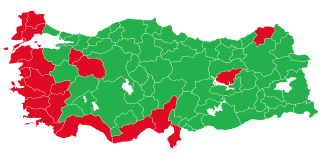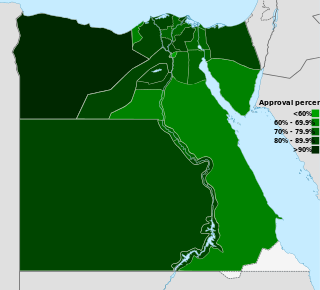
The Judicial Committee of the Privy Council (JCPC) is the highest court of appeal for the Crown Dependencies, the British Overseas Territories, some Commonwealth countries and a few institutions in the United Kingdom. Established on 14 August 1833 to hear appeals formerly heard by the King-in-Council, the Privy Council formerly acted as the court of last resort for the entire British Empire, other than for the United Kingdom itself.
Referendums have been held in Australia to approve parliament-proposed changes to the Constitution of Australia or to the constitutions of states and territories.
The Fifteenth Amendment of the Constitution Act 1995 is an amendment of the Constitution of Ireland which removed the constitutional prohibition on divorce, and allowed for the dissolution of a marriage provided specified conditions were satisfied. It was approved by referendum on 24 November 1995 and signed into law on 17 June 1996.

The Caribbean Court of Justice is the judicial institution of the Caribbean Community (CARICOM). Established in 2005, it is based in Port of Spain, Trinidad and Tobago.
The Twelfth Amendment of the Constitution Bill 1992 was a failed proposal to amend the Constitution of Ireland, to exclude the risk of suicide as sufficient reason to legally allow an abortion. It was rejected in a referendum on 25 November 1992.

A constitutional referendum was held in Kenya on 4 August 2010. Voters were asked whether they approved of a proposed new constitution, which had been passed by the National Assembly on 1 April 2010. The new constitution was seen as a vital step to avoid a repetition of the violent outbursts after the 2007 general elections.

A constitutional referendum on a number of changes to the constitution was held in Turkey on 12 September 2010. The results showed the majority supported the constitutional amendments, with 58% in favour and 42% against. The changes were aimed at bringing the constitution into compliance with European Union standards. Supporters of Turkish EU membership hope constitutional reform will facilitate the membership process.

A referendum to amend the Constitution of Liberia was held on 23 August 2011. Voters chose whether to ratify four amendments regarding judge tenure, elections scheduling, presidential candidate requirements and the electoral system. The National Elections Commission of Liberia (NEC) oversaw the referendum.

A constitutional referendum was held in Egypt on 19 March 2011, following the 2011 Egyptian revolution. More than 14 million (77%) were in favour, while around 4 million (23%) opposed the changes; 41% of 45 million eligible voters turned out to vote.
The Thirty-first Amendment of the Constitution (Children) Act 2012 amended the Constitution of Ireland by inserting clauses relating to children's rights and the right and duty of the state to take child protection measures. It was passed by both Houses of the Oireachtas (parliament) on 10 October 2012, and approved at a referendum on 10 November 2012, by 58% of voters on a turnout of 33.5%. Its enactment was delayed by a High Court case challenging the conduct of the referendum. The High Court's rejection of the challenge was confirmed by the Supreme Court on 24 April 2015. It was signed into law by the President on 28 April 2015.

A constitutional referendum was held in Croatia on 1 December 2013. The proposed amendment to the constitution would define marriage as being a union between a man and a woman, which would create a constitutional prohibition against same-sex marriage. 37.9% of eligible voters voted. After processing all of the ballots, the State Election Commission announced that 65.87% voted yes, 33.51% no and 0.57% of ballots were disregarded as invalid.

The Thirty-fourth Amendment of the Constitution Act 2015 amended the Constitution of Ireland to permit marriage to be contracted by two persons without distinction as to their sex. Prior to the enactment, the Constitution was assumed to contain an implicit prohibition on same-sex marriage in the Republic of Ireland. It was approved at a referendum on 22 May 2015 by 62% of voters on a turnout of 61%. This was the first time that a state legalised same-sex marriage through a popular vote. Two legal challenges regarding the conduct of the referendum were dismissed on 30 July by the Court of Appeal, and the bill was signed into law by the President of Ireland on 29 August. An amendment to the Marriage Act 2015 provided for marriages permitted by the new constitutional status. The act came into force on 16 November 2015; the first same-sex marriage ceremony was held on 17 November 2015.

A constitutional referendum was held in Armenia on 6 December 2015. Its amendments to the constitution put the country on a course from having a semi-presidential system to being a parliamentary republic, with the changes beginning to take place during the 2017–18 electoral cycle. The referendum passed with 66.2% of voters supporting it. Voter turnout was 50.8%, passing the 33% threshold to validate the results.

A constitutional referendum was held in Grenada on 24 November 2016. Voters were asked whether they approved of seven amendments, with each one voted on separately. The amendments would only have been approved if two-thirds of valid votes had been cast in favour. However, all seven proposals were rejected by voters. It was the first referendum in Grenada's history.

The Thirty-sixth Amendment of the Constitution of Ireland is an amendment to the Constitution of Ireland which permits the Oireachtas to legislate for abortion. The constitution had previously prohibited abortion unless there was a serious risk to the life of the mother.

The Thirty-seventh Amendment of the Constitution is an amendment to the constitution of Ireland which removed the constitution's requirement to criminalise "publication or utterance of blasphemous matter". The amendment was effected by an act of the Oireachtas — the Thirty-seventh Amendment of the Constitution Act 2018, which was introduced in Dáil Éireann, passed by the Dáil and Seanad, approved by the people in a referendum, and signed into law by the president.

A constitutional referendum was held in Antigua and Barbuda on 6 November 2018, the first referendum in the country's history. The proposed constitutional amendment, which ultimately failed to pass, would have made the Caribbean Court of Justice the final court of appeal, replacing the London-based Judicial Committee of the Privy Council. A quorum of 66.6 % of the valid votes in favour was required for the amendment to be approved.
The Thirty-eighth Amendment of the Constitution of Ireland is an amendment to the Constitution of Ireland which altered the provisions regulating divorce. It removed the constitutional requirement for a defined period of separation before a Court may grant a dissolution of marriage, and eased restrictions on the recognition of foreign divorces. The amendment was effected by an act of the Oireachtas, the Thirty-eighth Amendment of the Constitution Act 2019.

A constitutional referendum was held in Liberia on 8 December 2020 alongside Senate elections and two by-elections to the House of Representatives. It had been planned for 13 October, but was postponed due to the COVID-19 pandemic. Voters were asked whether they approved of eight amendments to the constitution, voting separately on each one. Although a majority of valid votes were in favour for each proposal, the two-thirds quorum was not met for any proposal.

The Building Bridges Initiative (BBI) was a proposed set of amendments to the Constitution of Kenya initially proposed in October 2019. In the wake of the 2017 general election annulment and subsequent re-run, incumbent President Uhuru Kenyatta mandated the formation of the Presidential Taskforce on Building Bridges to Unity Advisory on 31 May 2018. The Taskforce was assigned to provide constitutional and legislative solutions in 9 broad categories:
- Lack of National Ethos
- Ethnic Antagonism and Competition
- Responsibilities and Rights
- Shared Prosperity
- Divisive Elections
- Safety and Security
- Devolution
- Corruption
- Inclusivity













